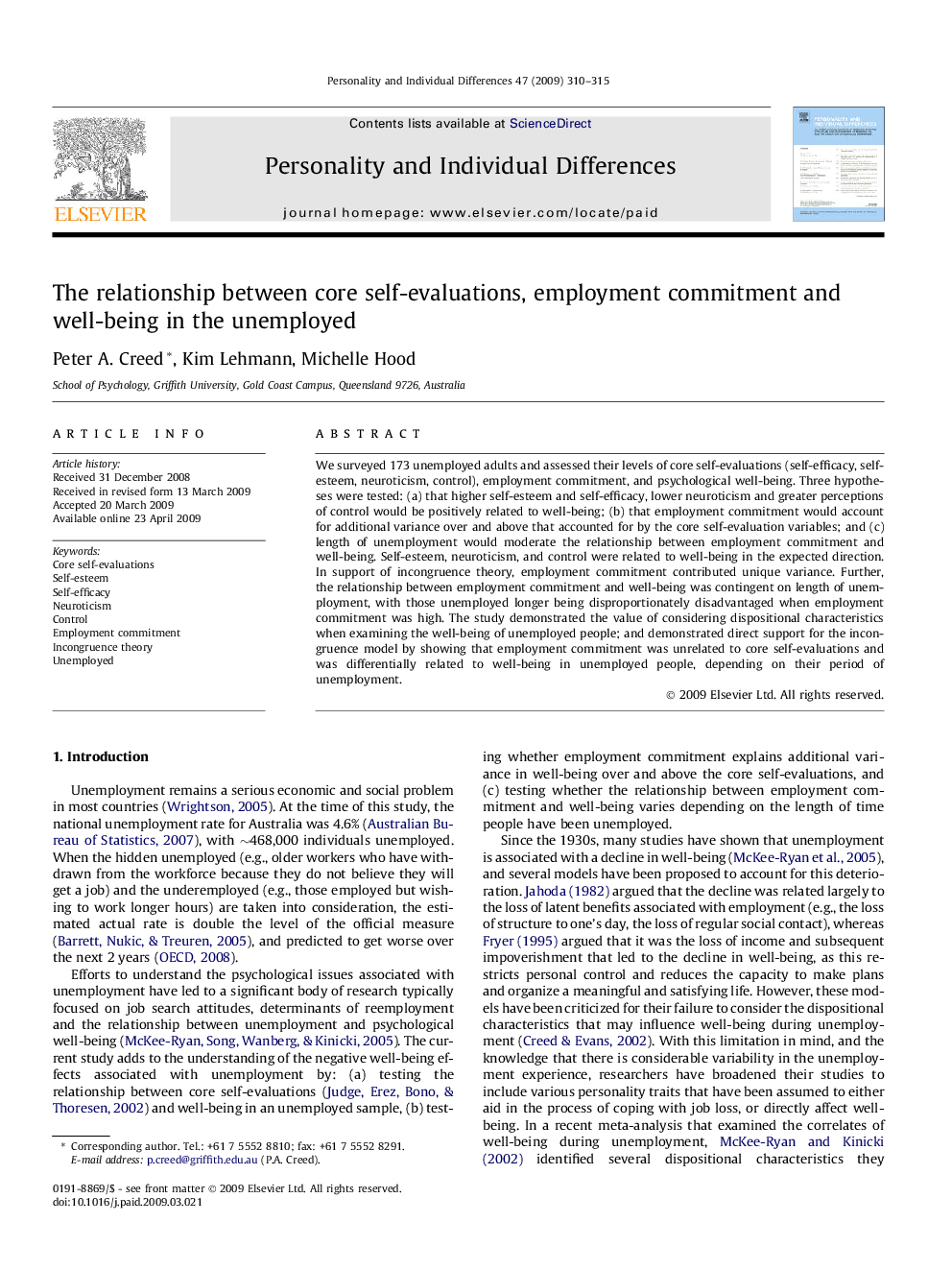| کد مقاله | کد نشریه | سال انتشار | مقاله انگلیسی | نسخه تمام متن |
|---|---|---|---|---|
| 892472 | 914084 | 2009 | 6 صفحه PDF | دانلود رایگان |

We surveyed 173 unemployed adults and assessed their levels of core self-evaluations (self-efficacy, self-esteem, neuroticism, control), employment commitment, and psychological well-being. Three hypotheses were tested: (a) that higher self-esteem and self-efficacy, lower neuroticism and greater perceptions of control would be positively related to well-being; (b) that employment commitment would account for additional variance over and above that accounted for by the core self-evaluation variables; and (c) length of unemployment would moderate the relationship between employment commitment and well-being. Self-esteem, neuroticism, and control were related to well-being in the expected direction. In support of incongruence theory, employment commitment contributed unique variance. Further, the relationship between employment commitment and well-being was contingent on length of unemployment, with those unemployed longer being disproportionately disadvantaged when employment commitment was high. The study demonstrated the value of considering dispositional characteristics when examining the well-being of unemployed people; and demonstrated direct support for the incongruence model by showing that employment commitment was unrelated to core self-evaluations and was differentially related to well-being in unemployed people, depending on their period of unemployment.
Journal: Personality and Individual Differences - Volume 47, Issue 4, September 2009, Pages 310–315